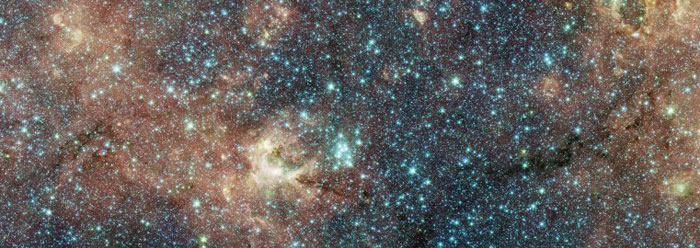For example, astronomers have observed that the earth has hundreds of parameters fine-tuned for life. This "anthropic principle" most reasonably implies that a wise Creator deliberately created them for this purpose. In order to avoid this inference, so-called string theorists invoked the idea of a "multiverse." They speculated that an infinite number of universes exists, one of which contains the life-friendly earth.1 However, real science shows only this one universe.2
Some researchers have attempted to explain that life—the evolution of which would directly oppose the laws of nature—came about through various scenarios that would be right at home in the realm of science fiction. One researcher, in true comic book fashion, entertained the idea that heavy radiation bombardment on a distant planet jumpstarted life.3 But science clearly shows that radiation kills!
And life is not the only thing that researchers have a hard time explaining from a naturalistic perspective. Even fundamental aspects of the universe are very difficult to explain—such as why electrons don't collapse down into their atomic nuclei, and why or how electrons apparently inhabit discrete energy levels inside atoms. Thus, researchers use the phrase "quantum mechanics" in place of a realistic and transferrable explanation for these mysterious observations. University of Minnesota physics professor James Kakalios told Scientific American recently that quantum mechanics "has weird ideas and it can be confusing."4 But if it is so confusing that physicists can't explain it to non-physicists, then do they truly understand it themselves?
Gravity is also supposedly another fundamental property of the universe, but there is no consensus on why or how it works, or how it might relate to quantum physics. One researcher proposed the idea that gravity is not an independent force, but is an after-effect of the standard laws of thermodynamics.5 His ideas have not yet been worked into standard physics texts, and they may never get that far, which shows that considerable doubt and debate reign over the nature of even something as basic a force as gravity.
Adding to the mix of unexplained phenomena, a team of physicists announced on September 23, 2011, that neutrinos, which have mass, were observed moving faster than light, which has no mass while in transit.6 But models of the structure and age of the universe depend on the idea that nothing can travel faster than the speed of light! Most cosmologies will have to be totally re-tooled if the speed of light is not a constant, but a variable.
And now, three astronomers have been awarded the Nobel Prize in physics for showing that the universe's expansion is accelerating—the cause of which is a total mystery.7 And like all the other mysteries, the proposed solution to this one has received a nifty name: "dark energy." Dark energy supposedly pulls galaxies apart, despite their gravitational attraction. However, "dark energy is the biggest mystery in science," according to Meg Urry, Director of the Yale Center for Astronomy and Astrophysics.8
If naturalistic scientific models don't even accurately describe how basic features of the universe such as atoms, gravity, neutrinos, or light work in the present, why rely on similarly structured models that purport to explain the beginnings of the universe? Even in this age of scientific advancement, the best information about the distant past comes not from physics, but from the eyewitness accounts of those present in the beginning, as recorded in God's Word.
References
- Coppedge, D. 2006. There's Only One Universe. Acts & Facts. 35 (12).
- Thomas, B. 'Multiverse' Theory Fails to Explain Away God. ICR News. Posted on icr.org December 3, 2008, accessed October 14, 2011.
- Moskowitz, C. Life May Depend on Galaxy. Astrobiology Magazine News. Posted on astrobio.net August 13, 2009, reporting on research published in Ćirković, M. M., B. Vukotić and I. Dragićević. 2009. Galactic Punctuated Equilibrium: How to Undermine Carter's Anthropic Argument in Astrobiology. Astrobiology. 9 (5): 491-501. See Thomas, B. The Incredible Hulk Theory of Life in Space. ICR News. Posted on icr.org August 19, 2009, accessed October 14, 2011.
- Matson, J. What Is Quantum Mechanics Good for? Scientific American. Posted on scientificamerican.com November 2, 2010, accessed October 14, 2011.
- Verlinde, E. P. 2011. On the Origin of Gravity and the Laws of Newton. Journal of High Energy Physics. 2011 (4): 29. Posted on arXiv.org January 6, 2010.
- Adams, T. et al. Measurement of the neutrino velocity with OPERA detector in the CNGS beam. arXiv:1109.4897v1. Posted on arxiv.org September 22, 2011.
- Gott, J. R. Nobel Prize in Physics 2011—The Accelerating Universe. National Geographic Daily News. Posted on nationalgeographic.com October 12, 2011, accessed October 18, 2011.
- Urry, M. Dark energy, science's biggest mystery. CNN Opinion. Posted on cnn.com October 9, 2011, accessed October 14, 2011.
Image credit: NASA
* Mr. Thomas is Science Writer at the Institute for Creation Research.
